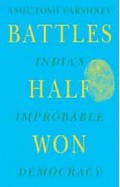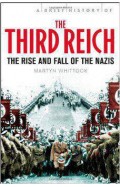- Home
- Motivation
- History
- Political
- Change the World Without Taking Power: The Meaning of Revolution Today
Change the World Without Taking Power: The Meaning of Revolution Today
By: John Holloway
-
Rs 643.50
- Rs 990.00
- 35%
You save Rs 346.50.
Due to constant currency fluctuation, prices are subject to change with or without notice.
'This is a refreshing, thought-provoking book. ... A must read for every student and practitioner of political science.' USI Journal
This is a new, updated edition of John Holloway's acclaimed guide to the politics of revolution and protest.
The wave of political demonstrations since Seattle have crystallised a new trend in left-wing politics. Modern protest movements are grounding their actions in both Marxism and Anarchism, fighting for radical social change in terms that have nothing to do with the taking of state power. This is in clear opposition to the traditional Marxist theory of revolution which centres on taking state power. In this book, John Holloway asks how we can reformulate our understanding of revolution as the struggle against power, not for power.
After a century of failed attempts by revolutionary and reformist movements to bring about radical social change, the concept of revolution itself is in crisis. John Holloway opens up the theoretical debate, reposing some of the basic concepts of Marxism in a critical development of the subversive Marxist tradition represented by Adorno, Bloch and Lukacs, amongst others, and grounded in a rethinking of Marx's concept of 'fetishisation'-- how doing is transformed into being.
| Book | |
| What's in the Box? | 1 x Change the World Without Taking Power: The Meaning of Revolution Today |
'This is a refreshing, thought-provoking book. ... A must read for every student and practitioner of political science.' USI Journal
This is a new, updated edition of John Holloway's acclaimed guide to the politics of revolution and protest.
The wave of political demonstrations since Seattle have crystallised a new trend in left-wing politics. Modern protest movements are grounding their actions in both Marxism and Anarchism, fighting for radical social change in terms that have nothing to do with the taking of state power. This is in clear opposition to the traditional Marxist theory of revolution which centres on taking state power. In this book, John Holloway asks how we can reformulate our understanding of revolution as the struggle against power, not for power.
After a century of failed attempts by revolutionary and reformist movements to bring about radical social change, the concept of revolution itself is in crisis. John Holloway opens up the theoretical debate, reposing some of the basic concepts of Marxism in a critical development of the subversive Marxist tradition represented by Adorno, Bloch and Lukacs, amongst others, and grounded in a rethinking of Marx's concept of 'fetishisation'-- how doing is transformed into being.
Change the World Without Taking Power: The Meaning of Revolution Today
By: John Holloway
Rs 643.50 Rs 990.00 Ex Tax :Rs 643.50
Zubin Mehta: A Musical Journey (An Authorized Biography)
By: VOID - Bakhtiar K. Dadabhoy
Rs 472.50 Rs 1,050.00 Ex Tax :Rs 472.50
How To Run The World Charting A Course To The Next Renaissance -
By: Parag Khanna
Rs 1,046.25 Rs 1,395.00 Ex Tax :Rs 1,046.25
Weapons of Mass Destruction: The New Face of Warfare
By: N/A
Rs 877.25 Rs 1,595.00 Ex Tax :Rs 877.25
How Democracies Die: What History Reveals About Our Future
By: Steven Levitsky
Rs 1,816.75 Rs 2,795.00 Ex Tax :Rs 1,816.75
The Economists' Hour: False Prophets, Free Markets, and the Fracture of Society
By: Binyamin Appelbaum
Rs 1,427.25 Rs 2,595.00 Ex Tax :Rs 1,427.25
The Age of Surveillance Capitalism: The Fight for a Human Future at the New Frontier of Power
By: Professor Shoshana Zuboff
Rs 1,621.75 Rs 2,495.00 Ex Tax :Rs 1,621.75
The Origins of Political Order From Prehuman Times to the French RevolutioN
By: Francis Fukuyama
Rs 3,116.00 Rs 3,895.00 Ex Tax :Rs 3,116.00
Battles Half Won : Indias Improbable Democracy
By: Ashutosh Varshney
Rs 2,726.75 Rs 4,195.00 Ex Tax :Rs 2,726.75
Curzon's India: Networks of Colonial Governance, 1899-1905
By: Dhara Anjaria
Rs 796.00 Rs 995.00 Ex Tax :Rs 796.00
A Brief History of The Third Reich: The Rise and Fall of the Nazis - Paperback
By: Martyn Whittock
Rs 1,795.50 Rs 1,995.00 Ex Tax :Rs 1,795.50
US Policy in Afghanistan and Iraq
By: Seyom Brown & Robert H. Scales
Rs 2,236.00 Rs 2,795.00 Ex Tax :Rs 2,236.00
The Peacemakers: India and the Quest for One World
By: Manu Bhagwan
Rs 552.50 Rs 850.00 Ex Tax :Rs 552.50
How To Run The World Charting A Course To The Next Renaissance -
By: Parag Khanna
Rs 1,046.25 Rs 1,395.00 Ex Tax :Rs 1,046.25
Weapons of Mass Destruction: The New Face of Warfare
By: N/A
Rs 877.25 Rs 1,595.00 Ex Tax :Rs 877.25
How Democracies Die: What History Reveals About Our Future
By: Steven Levitsky
Rs 1,816.75 Rs 2,795.00 Ex Tax :Rs 1,816.75
The Economists' Hour: False Prophets, Free Markets, and the Fracture of Society
By: Binyamin Appelbaum
Rs 1,427.25 Rs 2,595.00 Ex Tax :Rs 1,427.25
The Age of Surveillance Capitalism: The Fight for a Human Future at the New Frontier of Power
By: Professor Shoshana Zuboff
Rs 1,621.75 Rs 2,495.00 Ex Tax :Rs 1,621.75
No recently viewed books available at the moment.
Zubin Mehta: A Musical Journey (An Authorized Biography)
By: VOID - Bakhtiar K. Dadabhoy
Rs 472.50 Rs 1,050.00 Ex Tax :Rs 472.50
Change the World Without Taking Power: The Meaning of Revolution Today
By: John Holloway
Rs 643.50 Rs 990.00 Ex Tax :Rs 643.50
How To Run The World Charting A Course To The Next Renaissance -
By: Parag Khanna
Rs 1,046.25 Rs 1,395.00 Ex Tax :Rs 1,046.25
Weapons of Mass Destruction: The New Face of Warfare
By: N/A
Rs 877.25 Rs 1,595.00 Ex Tax :Rs 877.25
How Democracies Die: What History Reveals About Our Future
By: Steven Levitsky
Rs 1,816.75 Rs 2,795.00 Ex Tax :Rs 1,816.75
The Economists' Hour: False Prophets, Free Markets, and the Fracture of Society
By: Binyamin Appelbaum
Rs 1,427.25 Rs 2,595.00 Ex Tax :Rs 1,427.25
The Age of Surveillance Capitalism: The Fight for a Human Future at the New Frontier of Power
By: Professor Shoshana Zuboff
Rs 1,621.75 Rs 2,495.00 Ex Tax :Rs 1,621.75











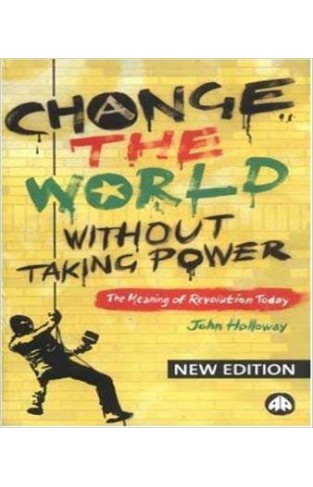
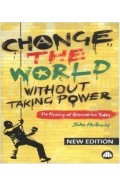
-120x187.jpg?q6)





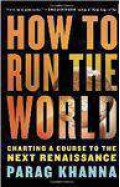


-120x187.jpg?q6)
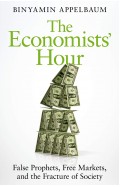
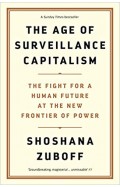
-120x187.jpg?q6)


